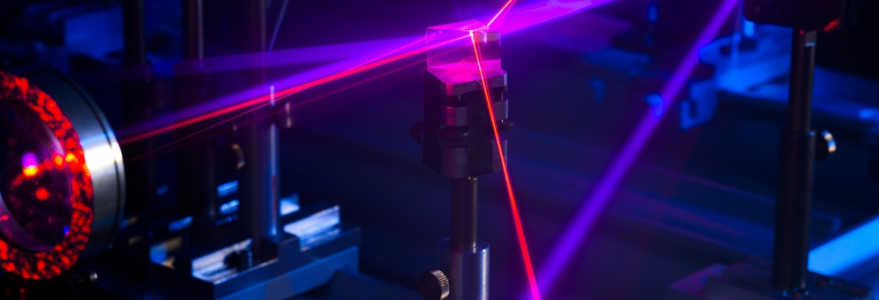Two new laboratories have been established at the Centre of New Technologies at the University of Warsaw: Laboratory of Neuroeconomics, headed by Dr Alicja Puścian, and Laboratory of Organic Electronics, headed by Dr Przemysław Gaweł.
The UW’s Centre of New Technologies (CeNT) brings together scientists from various fields to conduct interdisciplinary projects. Its activities are based on the work of teams that are formed to carry out specific scientific or educational projects.
Two new laboratories have recently been established at CeNT.
Laboratory of Neuroeconomics
Researchers from the Laboratory of Neuroeconomics want to help understand how the brain shapes economic decisions in a social context.
It is the first research laboratory in Poland to conduct integrated research on the neural basis of social influence on decisions. Scientists will work on many levels – from synapses and neural circuits in animal models to real-time neuroimaging in human studies.
Research at the Laboratory of Neuroeconomics will be interdisciplinary in nature and will draw on knowledge from the fields of neuroscience, behavioural economics and advanced data analysis methods. The unit will present an innovative approach to research on how social norms, close relationships and group structure influence our preferences, choices and long-term habits.
Experiments in the Laboratory will be conducted in parallel in two systems: in humans, using neuroimaging and virtual environments, and in mice, in natural conditions, using the proprietary Eco-HAB® platform. By combining these perspectives, it will be possible to create comparative models of social decisions and identify specific mechanisms in the brain responsible for their regulation.
The Laboratory of Neuroeconomics is headed by Dr Alicja Puścian, who gained her scientific experience in Switzerland, Japan and the United States, among other places, and completed her postdoctoral fellowship at Yale University. Dr Puścian’s research focuses on the relationship between neural processes and behaviour, with particular emphasis on motivation, emotions and social influences on decision-making.
“The team of the Laboratory of Neuroeconomics will be built with the highest standards of scientific excellence in mind, based on multilateral international cooperation and with the active involvement of specialists from various fields. At the same time, partnerships with the economic and medical communities will be developed to translate research results into real-world social applications. Our ambition is for advanced neuroeconomics methods to cease to be the exclusive domain of academia and become a tool that supports people in making more informed, flexible and socially embedded decisions,” says Dr Alicja Puścian.
Laboratory of Organic Electronics
The Laboratory of Organic Electronics is headed by Dr Przemysław Gaweł. In 2012, he obtained his PhD under the supervision of Prof. François Diederich at the Swiss Federal Institute of Technology in Zurich, researching functional synthetic materials based on cumulenes. In 2015, he joined Prof. Harry L. Anderson’s group at the University of Oxford as a postdoctoral fellow of the Swiss National Science Foundation, and in 2017 he began working as an assistant professor at Kebe College. In October 2020, Przemek received a Polish Returns grant from the National Agency for Academic Exchange to establish a research group at the Institute of Organic Chemistry of the Polish Academy of Sciences. His research interests include high-carbon materials chemistry, materials science, organic optoelectronics and supramolecular chemistry.
A team of scientists from the new CeNT UW laboratory will design carbon-rich “molecular building blocks” that will combine organic chemistry with modern electronics.
“We conduct research on organic optoelectronic materials – programmable molecular systems that drive the digital revolution. Molecules designed in this way can improve displays, photovoltaics, sensors, transistors, storage media and medical solutions. Today, humanity uses only a fraction of the potential of electronic materials – about 20% of available technologies – and less than 0.1% of the solar energy that can be obtained, which is why we focus on areas that are key to efficient and sustainable digital technologies of the future,” explains Dr Przemysław Gaweł.
The laboratory’s research will focus on three topics: printable organic semiconductors for flexible displays and wearable sensors, multi-chromophore systems for more efficient use of light, and chiral and spin-active molecules used in photonics and quantum technologies (CISS, CPL emission).
The Laboratory of Organic Electronics has already received national and international grants for its activities, which allow scientists to focus on, for example, computational modelling, spectroscopy and device prototyping.
“The mission of the Laboratory of Organic Electronics is materials-by-design: from molecules to devices. We combine science and engineering in a single research and development cycle to build faster, more energy-efficient digital technologies and educate specialists working at the intersection of chemistry, physics and engineering,” adds Dr Gaweł.



